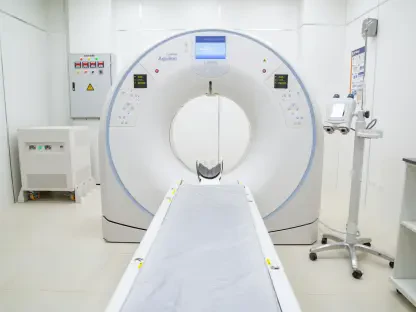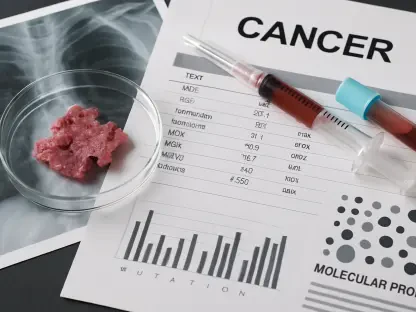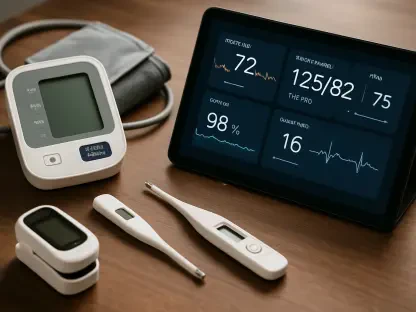Geneoscopy, a healthcare company, has announced the commercial launch of Colosense, a groundbreaking at-home colorectal cancer screening test. This innovative, noninvasive test comes on the heels of an impressive $105 million funding round and FDA approval, positioning Colosense as a major player in the world of colorectal cancer diagnostics. With colorectal cancer being one of the leading causes of cancer-related deaths, the introduction of an easy-to-use, efficient at-home test marks a significant milestone in the fight against this deadly disease.
The Importance of Colorectal Cancer Screening
Colorectal cancer remains a significant health threat, emphasizing the urgent need for effective screening methods, especially for adults between 45 and 75 years at average risk. Traditionally, screening methods have included fecal occult blood tests, sigmoidoscopy, colonoscopy, virtual colonoscopy, and DNA stool tests, with Exact Sciences’ Cologuard being a well-known example of the latter. However, despite these existing methods, the introduction of Geneoscopy’s Colosense, which utilizes an innovative RNA-based testing method, could revolutionize how colorectal cancer is detected and managed.
The Colosense test is specifically designed to identify colorectal neoplasia-associated RNA markers and occult hemoglobin in stool samples. Its approval by the FDA for adults 45 years and older at average risk of developing colorectal cancer speaks volumes about its potential impact on early cancer detection. Early detection is crucial for increasing the chances of successful treatment and improving survival rates. By making screening easier and more accessible, Colosense could make a substantial difference in public health outcomes.
Innovative RNA-Based Approach
Andrew Barnell, Geneoscopy’s CEO and co-founder, emphasizes the unique benefits of Colosense, particularly its ability to provide phenotypic and quantitative insights through RNA analysis. Unlike DNA-based tests, RNA offers stability against age-related methylation patterns, bolstering the test’s accuracy and reliability. This innovative approach not only enhances the test’s effectiveness but also opens up new possibilities for advanced cancer diagnostics.
The significant financial backing for Colosense cannot be overlooked. The $105 million Series C funding round, bolstered by strategic partners such as Bio-Rad Laboratories and Labcorp, highlights the confidence in the market potential of this innovative screening solution. Bio-Rad’s digital PCR technology, essential for the quantitative measurement of gene expression, is integral to the functionality of Colosense. This technological partnership underscores how cutting-edge technologies are being leveraged to improve colorectal cancer screening methodologies.
Clinical Performance and Comparisons
In clinical trials, Colosense has demonstrated commendable performance. A study involving nearly 9,000 adults showed a 94% sensitivity in detecting colorectal cancer and a 46% sensitivity for identifying advanced adenomas. Additionally, the test exhibited an 88% specificity for patients without colonoscopic lesions. These statistics reveal that Colosense’s performance is competitive with Exact Sciences’ Cologuard, which reported a 92% sensitivity for colorectal cancer and a 42% sensitivity for advanced adenomas.
One of the key comparative advantages of Colosense is observed in the age bracket of 45 to 49 years. Cologuard has shown lower sensitivity for advanced adenomas within this demographic, an area where Colosense potentially holds a superior edge. By delivering more accurate screening results in younger populations, Colosense could fill a critical gap in early cancer detection, improving outcomes for individuals in this age category.
User-Friendly Design and At-Home Convenience
Ease of use is paramount in the design of Colosense, making it an enticing option for patients. Administering the test at home comes with a straightforward collection process, significantly reducing the barriers to participation. The kit includes clear patient instructions, a stool sample collection bucket, a toilet seat bracket, an absorbent sheet, a sampling bottle, a preservative, and a shipping box. Patients can easily collect a stool sample and send it back to Geneoscopy’s laboratory, all without needing to leave home.
The design elements ensuring ambient temperature transport and the use of preservation bumpers further enhance the test’s user-friendliness. These features maintain sample stability during shipping, critical for accurate results. By simplifying the collection and shipping process, Colosense may encourage higher participation rates in colorectal cancer screening, thus increasing the number of early detections and improving overall public health outcomes.
Strategic Partnerships and Market Adoption
The collaboration with Labcorp is crucial for the successful commercialization of Colosense. Labcorp’s involvement encompasses various essential aspects such as test detailing, billing, provider education, and facilitating test orders. These roles are vital for the widespread adoption of Colosense in primary care settings. Additionally, Geneoscopy is making strides to secure coverage from government and other payors, a necessary step to ensure the test’s affordability and accessibility for the broader population.
The substantial financial support and strategic partnerships signify strong confidence in the market potential of Colosense. The collaboration with Bio-Rad Laboratories and Labcorp not only provides technological expertise but also aids in penetrating the healthcare market. These partnerships play a pivotal role in integrating Colosense into routine medical practices, influencing the future landscape of colorectal cancer screening.
Future Potential of RNA-Based Diagnostics
Geneoscopy, a leading healthcare company, has officially launched Colosense, an innovative at-home colorectal cancer screening test. This cutting-edge, noninvasive test arrives shortly after the company secured a remarkable $105 million in funding and gained approval from the FDA. Colosense is set to revolutionize colorectal cancer diagnostics, offering a user-friendly and efficient screening option right from the comfort of home. Colorectal cancer is one of the primary causes of cancer-related deaths, making the availability of such an accessible and effective at-home test a significant advancement in the ongoing effort to combat this deadly disease. The introduction of Colosense is expected to help increase early detection rates, improve patient outcomes, and reduce the overall burden of colorectal cancer on the healthcare system. By facilitating early and regular screening, Colosense aims to empower individuals with a proactive approach to their health, potentially saving countless lives through timely diagnosis and intervention.









